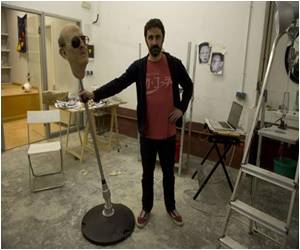A yellowed portrait hangs over the bar in the Cova Funda restaurant: Antonio de Oliveira Salazar, the dictator who gripped Portugal in his fist for half a century.

Many still nurse the wounds of torture by his regime -- but the locals at the bar here, like many others fed up with Portugal's economic crisis, remember him fondly.
"We would need 100 Salazars to sort this country out," said Manuel Campos, 59, a regular at the Cova Funda. "He was a dictator, but he was not Hitler or Mussolini."
Commemorations of the 1974 "Carnation Revolution" on its 40th anniversary on Friday are tainted by lingering wounds stinging more sharply in the recent economic crisis.
"Since the start of the crisis, we have seen the values of the revolution being simply destroyed," said one of the surviving coup leaders, Vasco Lourenco.
For the third year in a row, he and other veterans of the coup are boycotting Friday's official celebrations in protest.
Advertisement
- Nostalgia for dictatorship -
Advertisement
It toppled a dictatorship that lasted from 1926 under Salazar and from 1968 under Caetano. The country's new leaders withdrew Portugal from its African colonies.
The bloodless uprising became known as the Carnation Revolution after red spring flowers were placed in the muzzles of the soldiers' rifles.
Portugal flourished after the revolution, joining the European Union in 1986, but high debts caught up with it.
In 2011 it had to be bailed out by international creditors, who obliged it to make tough spending cuts and other austerity measures.
"In the crisis, the number of people nostalgic for the dictatorship has risen, in Santa Comba Dao and elsewhere in Portugal," said Alberto Andrade, 57, an anti-fascist activist in the town.
A recent study by Lisbon University concluded that 19 percent of Portuguese believe the dictatorship had more good sides than bad -- two points higher than a decade ago.
- Torture nightmares -
In the southern town of Evora, Aurora Rodrigues, 62, still has nightmares about being tortured by the secret police for protesting against the regime.
At the age of 21 she was deprived of sleep for two weeks straight and today cannot put her head under water, remembering the simulated drownings she suffered in 1973.
"No pacification is possible until the torturers are brought to account," she told AFP.
Now a magistrate, she kept silent about her torture for 36 years until a psychiatrist treating her for recurring nightmares persuaded her to write a book about it.
"The mood after the revolution discouraged political prisoners from speaking out," resulting in a "whitewash" of the crimes by Salazar's ideological police, the PIDE, she said.
Irene Pimentel, a historian, estimates that the PIDE killed nearly 50 political dissidents in Portugal, not including victims who died in the colonies.
She says 2,755 people linked to the PIDE have been tried and more than two thirds of them received jail terms shorter than six months.
Another torture victim, Fernando Vicente, a former official of Portugal's Communist Party, underwent 33 days of sleep deprivation.
He later testified in court against his torturer, who was released for lack of evidence.
"The revolution was not tough enough in that respect, but they had to make concessions," to avoid a civil war, he said.
Salazar's grave lies covered in flowers in a cemetery in Santa Comba Dao.
Three days after the anniversary of the revolution, crowds of supporters will come to mark his birthday at his tomb, which is surrounded by messages left by supporters.
"You will live eternally in the hearts of millions of Portuguese," reads one.
Source-AFP









